
Contents
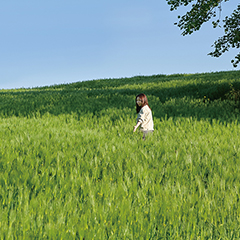
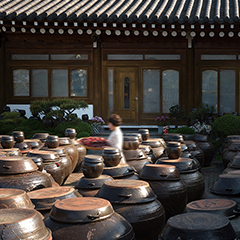
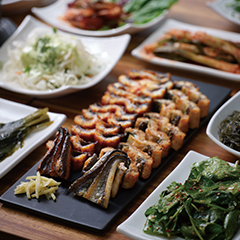
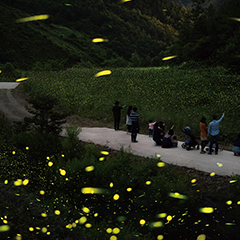
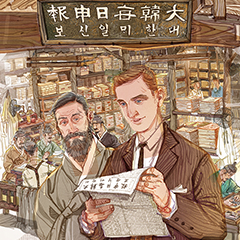
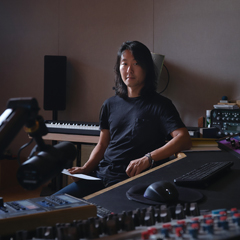
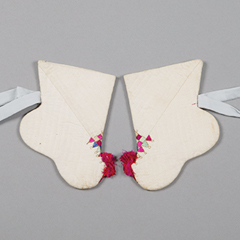
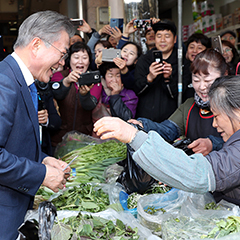


Spotlight · Written by Kim You-rim
Lights Caressing Fingers
Muju Firefly Festival
A flock of fireflies lighting up the night sky creates an unparalleled visual spectacle. The pristine nature of Muju-gun
County in Jeollabuk-do Province, comprising pure water, air and land is home to these fireflies. Launched in 1997 and designated
National Natural Heritage No.322, this annual festival is the only one of its kind in Korea.
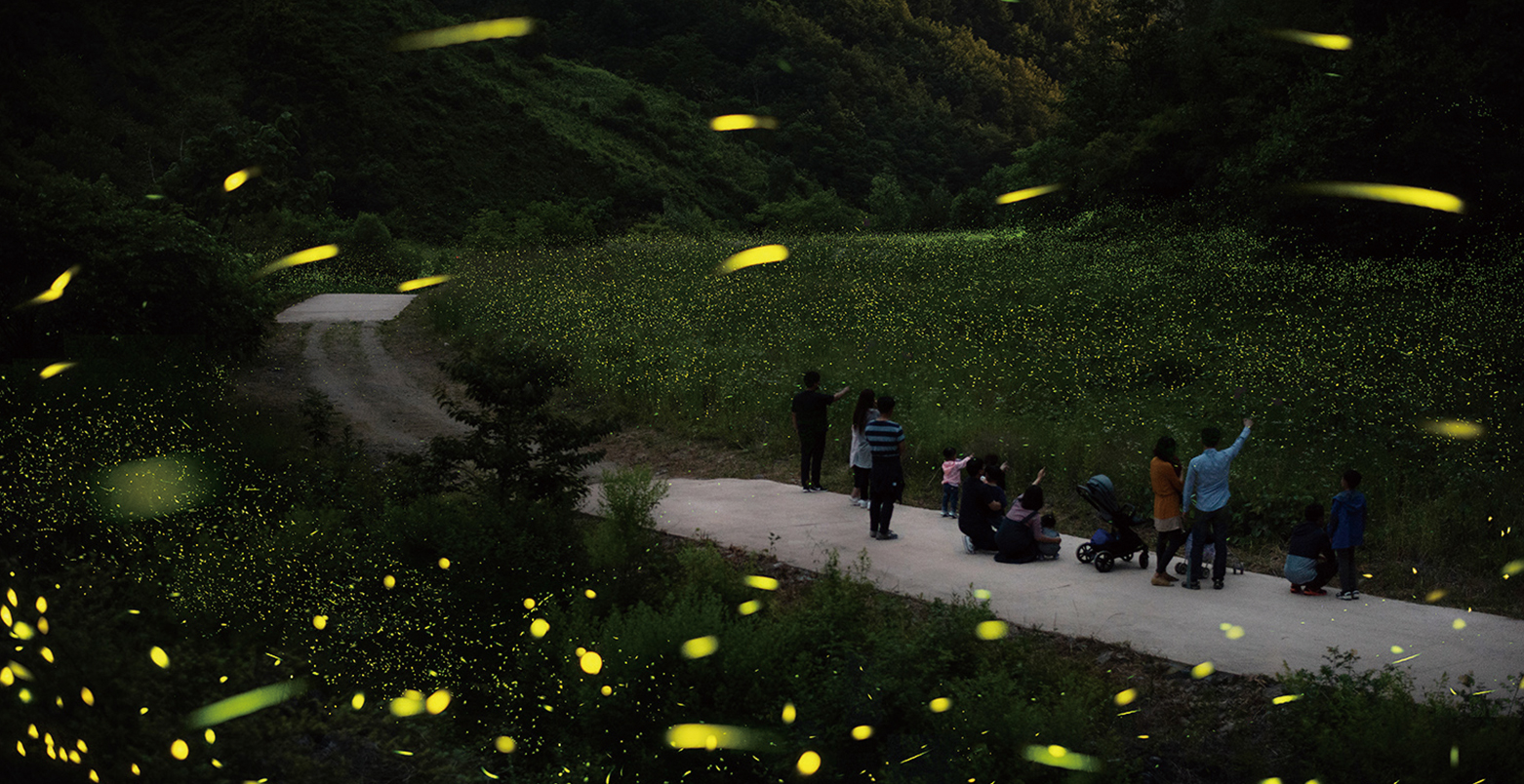
Surrounding Lights
The highlight of the Muju Firefly Festival is, of course, fireflies. When the sun goes down, families and couples get on a shuttle bus that takes them to the forest pathway. Lamps guide them along the trail and fireflies surround them as they go. Gently touching and brushing against faces and fingers, the fireflies welcome visitors. Here, the Star Picnic Program allows visitors to lay on an air cushion and gaze at the starry night.
Cultural Programs
Traditional Korean-style fireworks organized by residents of Dumun Village are also not to be missed. The fireworks are made from a combination of hanji (traditional Korean paper), charcoal and salt and ignited to create sparklers on strings unique to this festival. Events will also be held on Seop Bridge, made of pine logs, branches and mud. Featured on the CNN list of “50 beautiful places to visit in South Korea,” the bridge will feature reenactments of traditional Korean weddings and funerals to show what life in Korea was like in the past.
More about Muju Firefly Festival ⟶
Jeollabuk-do Province
Land Rich in Tradition
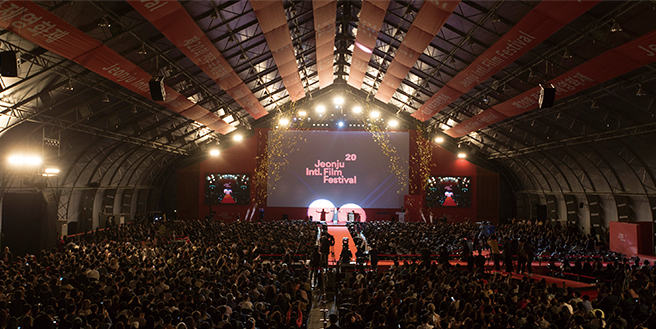
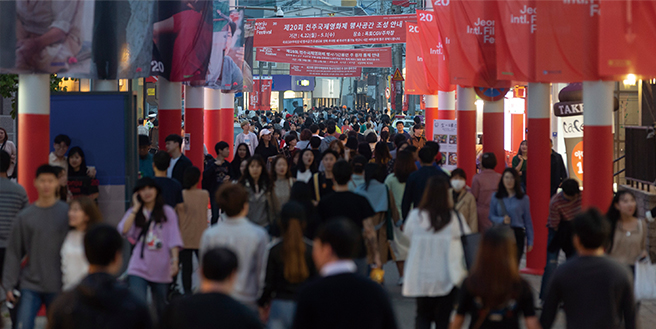
© Jeonju International Film Festival
Jeonju International Film Festival (JIFF)
/ May 2-11
Under the slogan “Freedom, Independence and Communication,” the Jeonju International Film Festival marked its 20th anniversary this year as a global mecca for independent and experimental films, screening 262 flicks from 52 countries. Directors who had participated in the event were also invited to discuss the festival’s history, tradition, identity and future.
Including the National Human Rights Commission of Korea’s “If You Were Me,” a wide range of films on human rights as well as other works rarely seen at other festivals were introduced, attesting to the event’s heightened stature among moviegoers, indie film directors and critics.
More about JIFF ⟶
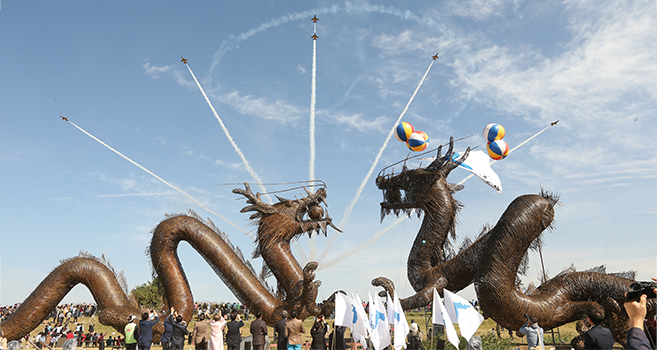
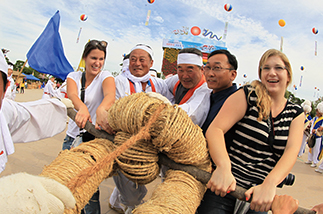
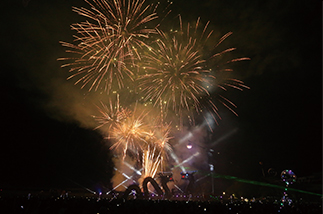
© Gimje City
Gimje Horizon Festival
/ Sept. 27 - Oct. 6
Drawing more than a million visitors every year, the Gimje Horizon Festival celebrates traditional Korean agriculture that has a history of over 5,000 years. Honam Plain, the country’s largest granary, offers every fall a spectacular view of golden rice farms that seem to endlessly stretch. This festival offers an opportunity to experience Korean agriculture while promoting the region’s specialty, Jipyeongseon rice.
Marking its 21st year, the festival will offer a range of hands-on activities such as interactive farming including rice harvesting, cooking rice using a furnace and entertainment like riding a cow cart across rice fields. Other highlights include an acrobatic flight show by the Black Eagles of the Republic of Korea Air Force and a torch parade that lights up the night sky.
More about Gimje Horizon Festival ⟶
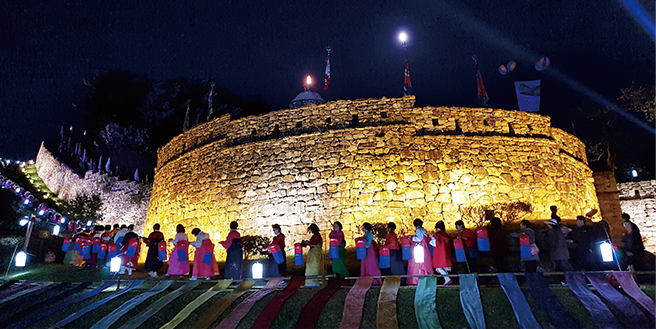
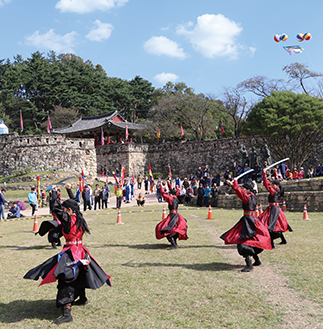
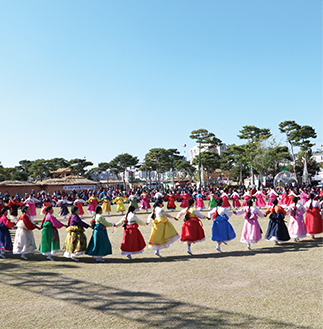
© Moyangseong Preservation Society
Gochang Moyang Fortress Festival
/ Oct. 3-7
Gochang Moyang Fortress, built in 1453 by locals to defend the country against Japanese invasions, was an outpost to guard the Honam area comprising the modern-day city of Gwangju and Jeolla-do Province. Legend had it that anyone who walked along the fortress’ ridges once would be cured of minor ailments like a limp, a second time would keep one free from disease for life and the third would enlighten the person and send him or her to heaven. This story served as the foundational basis for the festival, which was launched in 1973.
During this ritual, each participant must carry a hand-size stone, make three circles along the fortress and stack them at the gate. This was practiced in the belief that heavier weight by a stone emboldened the defenders of the castle, in addition to storing the stones within the castle for an emergency. In addition, other cultural programs include pansori (Korean one-person lyrical opera), nongak (farmers’ music), archery and dapseongnori (a game in which women climb a mountain fortress and walk along the fortress’ ridges in a line).
More about Gochang Moyang Fortress Festival ⟶
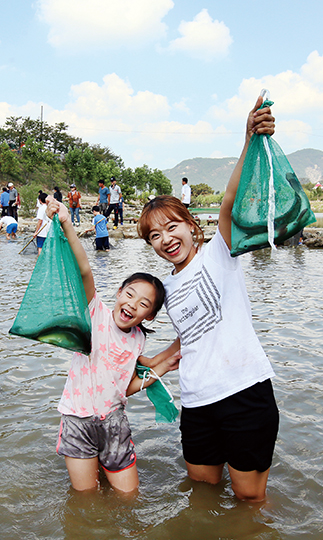
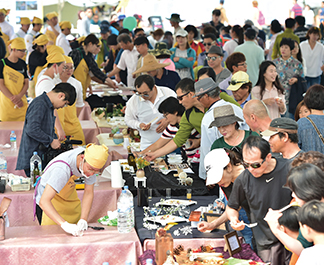
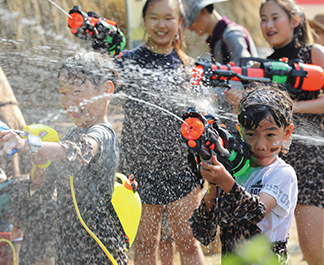
© Wanju-gun
Wanju Wild Food Festival
/ Sept. 27-29
The Wanju Wild Food Festival in Wanju-gun County offers a wide range of unique culinary experiences. The list of dishes includes wild food consumed with no cooking or extra seasoning, uncommon delicacies, roasted frog legs and even grasshoppers, which will offer people in their 40s and 50s with a taste of yesteryear. Food can also be purchased to take home or be delivered.
In addition to winning the grand prize at the Festival Content Awards for six consecutive years, the event will have Wanju residents actively produce and process the food, making the festival valuable to the region’s economic vitality. Programs like fishing in a river, catching mudfish and fire oven cooking will also provide excitement to children while bringing back memories for the older generation.
More about Wanju Wild Food Festival ⟶
Other Articles















